News
HISTORICAL GLOBAL TEMPERATURE TRENDS
It has been claimed that the last decade of the 20th century was the warmest of the past hundred years and possibly the warmest of the entire past millennium (Mann et al., 1998, 1999). It has also been claimed that this observation is a cause for much concern, because the temperatures in question are supposedly so unprecedented. In fact, those who would have us believe that these supposedly high air temperatures are the result of anthropogenic CO2 emissions resulting from the burning of fossil fuels contend that the near-surface air temperature of the planet is currently so high that we must radically reformulate the energetic basis of the entire industrialized world in order to avoid a host of unwanted climatic consequences. But is this climatic characterization correct? ... and is its adherents' call to action truly prudent?
Fully cognizant of the seriousness of this situation, Petit et al. (1999) described their analysis of the deepest ice core ever recovered from the Russian Vostok drilling station in East Antarctica, from which they extracted a 420,000-year history of the earth's near-surface air temperature and atmospheric CO2 concentration. This record covered the current interglacial period in which we now live, i.e., the Holocene, as well as the preceding four such climatic intervals. And why is this fact so important? Simply for what it tells us about the uniqueness or non-uniqueness of the Holocene; and that is that the current interglacial is by far the coldest of the five most recent such periods. In fact, the four interglacials that preceded the Holocene were, on average, more than 2°C warmer than the one in which we currently live. Also, atmospheric CO2 concentrations during all four prior interglacials never rose above approximately 290 ppm, whereas the air's CO2 concentration today (mid-2013) stands at about 400 ppm. Therefore, if there was anything unusual, unnatural or unprecedented about late-20th-century air temperatures, it was that they were so low in the presence of such high CO2 concentrations.
Similar findings have been obtained from the Dome Fuji ice core, which was extracted from a site in an entirely different sector of East Antarctica that is separated from the Vostok ice-core site by 1500 km (Watanabe et al., 2003). Although of somewhat shorter duration and, therefore, covering only the last three glacial-interglacial periods (marine stages 5.5, 7.5 and 9.3), this independent proxy temperature record also reveals that the last three interglacials, in the words of the six scientists, "were much warmer than the most recent 1,000 years (~4.5°C for stage 5.5 and up to 6°C for stage 9.3)."
More News
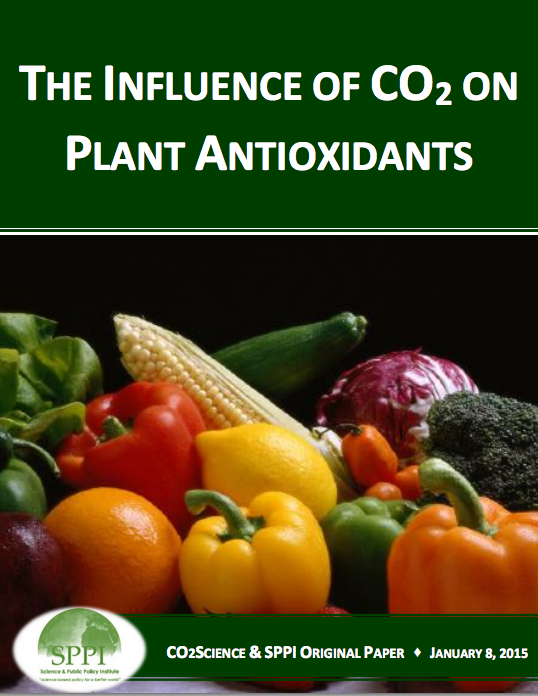
The Influence of CO2 on Plant Antioxidants
Center for the Study of Carbon Dioxide and Global Change. "The Influence of CO2 on Plant Antioxidants.” Last modified January 8, 2015. http://www.co2science.org/subject/a/summaries/antioxidants.php.
Released On: 1/16/2015
Views: 6494
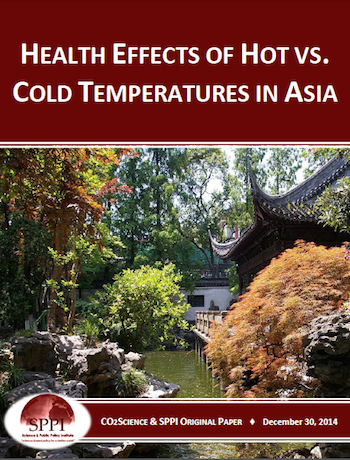
Health Effects of Hot Vs Cold Temperatures in Asia
Health Effects of Hot Vs Cold Temperatures in Asia.
Released On: 1/5/2015
Views: 6727
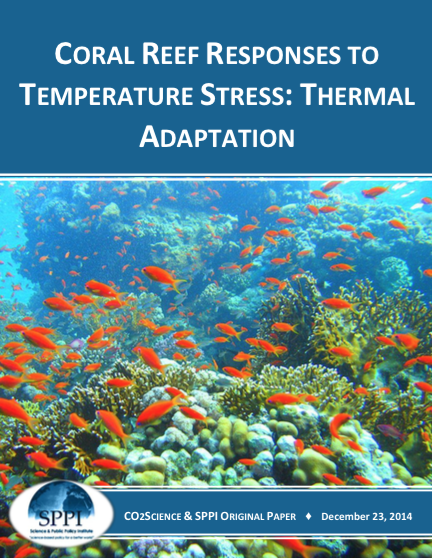
Coral Reef Responses to Temperature Stress: Thermal Adaptation
Coral Reef Responses to Temperature Stress: Thermal Adaptation. As living entities, corals are not only acted upon by the various elements of their environment,they also react or respond to them.
Released On: 12/29/2014
Views: 6362

Forest Growth Response to CO2
Forest Growth Response to CO2. By examining various properties of tree rings, researchers can deduce how historical increases in the air's CO2 concentration have already affected tree productivity and water use efficiency.
Released On: 12/29/2014
Views: 4987

Onward Marches the Great Pause
Onward Marches the Great Pause. Since October 1996 there has been no global warming at all (Fig. 1).
Released On: 12/29/2014
Views: 4029

RESPONSE OF VARIOUS MARINE ANIMALS TO OCEAN ACIDIFICATION AND WARMING
RESPONSE OF VARIOUS MARINE ANIMALS TO OCEAN ACIDIFICATION AND WARMING.
Released On: 12/8/2014
Views: 3686

FACE EXPERIMENTS AND GRASSLAND SPECIES
FACE EXPERIMENTS AND GRASSLAND SPECIES.
Released On: 12/8/2014
Views: 4261

EFFECTS OF OCEAN ACIDIFICATION ON FISH
EFFECTS OF OCEAN ACIDIFICATION ON FISH.
Released On: 12/8/2014
Views: 4276

Response of Fish to Ocean Warming
Response of Fish to Ocean Warming. According to the IPCC, CO2-induced global warming will be net harmful to the world's marine species.
Released On: 11/21/2014
Views: 4187

Long-Term Open-Top-Chamber Study of Sour Orange Trees
Long-Term Open-Top-Chamber Study of Sour Orange Trees. Eight 30-cm-tall sour orange tree (Citrus aurantium L.) seedlings were planted directly into the ground at the Agricultural Research Service's U.S. Water Conservation Laboratory in Phoenix, A ...
Released On: 11/21/2014
Views: 4214
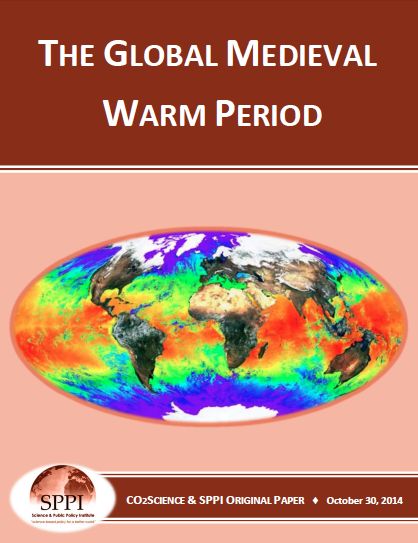
The Global Medieval Warm Period
The Global Medieval Warm Period. Between the 10th and 14th centuries AD, earth's average global temperature may have been warmer than it is today.
Released On: 11/21/2014
Views: 4029
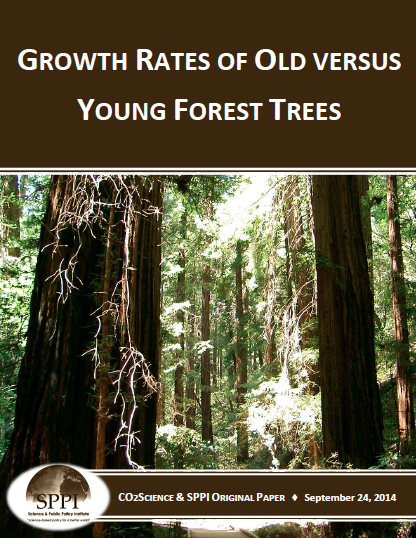
Growth Rates of Old versus Young Forest Trees
Growth Rates of Old versus Young Forest Trees. The planting and preservation of forests has long been acknowledged to be an effective and environmentally-friendly means for slowing climate-model-predicted CO2-induced global warming.
Released On: 9/30/2014
Views: 4291
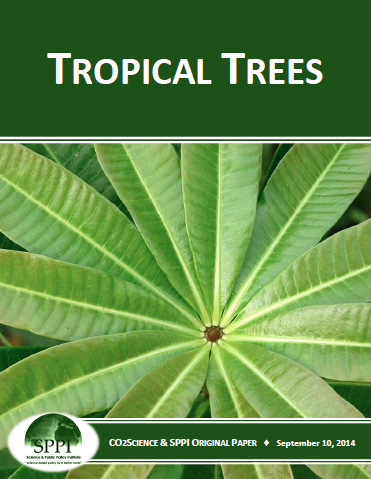
Tropical Trees
Citation: Center for the Study of Carbon Dioxide and Global Change. "Tropical Trees.”
Released On: 9/30/2014
Views: 4357
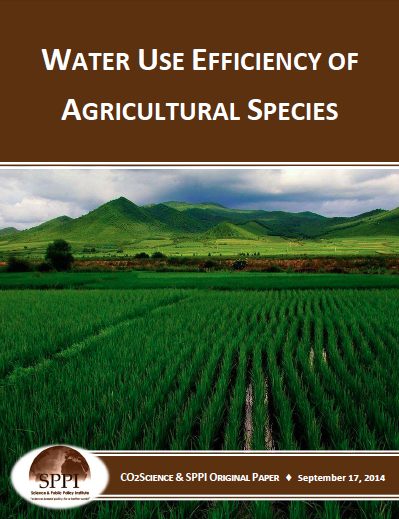
Water Use Efficiency of Agricultural Species
Water Use Efficiency of Agricultural Species.
Released On: 9/30/2014
Views: 4240
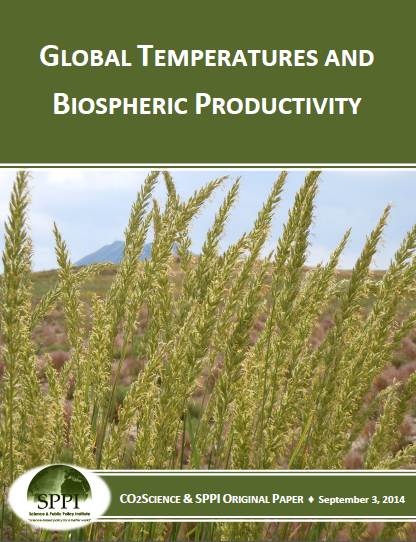
GLOBAL TEMPERATURES AND BIOSPHERIC PRODUCTIVITY
Global temperatures and biospheric productivity. Among the many climate-alarmist fears of CO2-induced global warming is the concern that the productivity of the biosphere will decline if global temperatures rise to the extent predicted by compute ...
Released On: 9/13/2014
Views: 4222
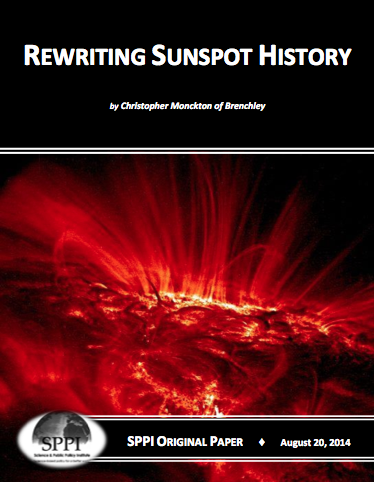
REWRITING SUNSPOT HISTORY
Rewriting sunspot history. In 2006, when I first made the mistake of writing publicly of my doubts about the Party Line on manmade global warming.
Released On: 9/13/2014
Views: 4284
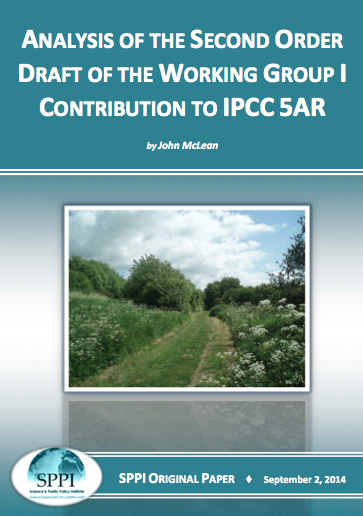
ANALYSIS OF THE SECOND ORDER DRAFT OF THE WORKING GROUP I CONTRIBUTION TO IPCC 5AR
ANALYSIS OF THE SECOND ORDER DRAFT OF THE WORKING GROUP I CONTRIBUTION TO IPCC 5AR. The preparation of IPCC Assessment Reports involves several stages.
Released On: 9/13/2014
Views: 4104
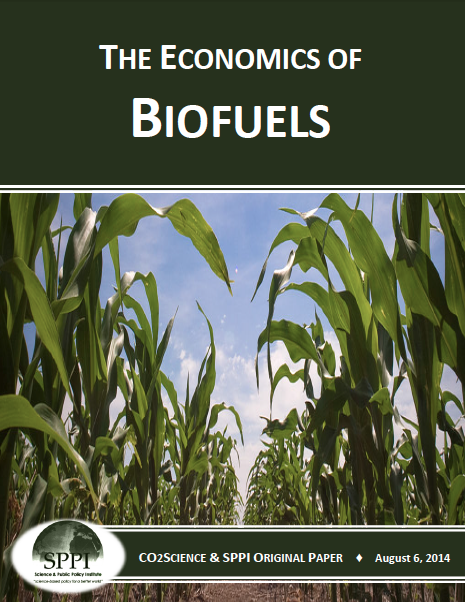
THE ECONOMICS OF BIOFUELS
The economics of biofuels. Aside from rejecting biofuel expansion and use for environmental reasons.
Released On: 9/13/2014
Views: 3944



